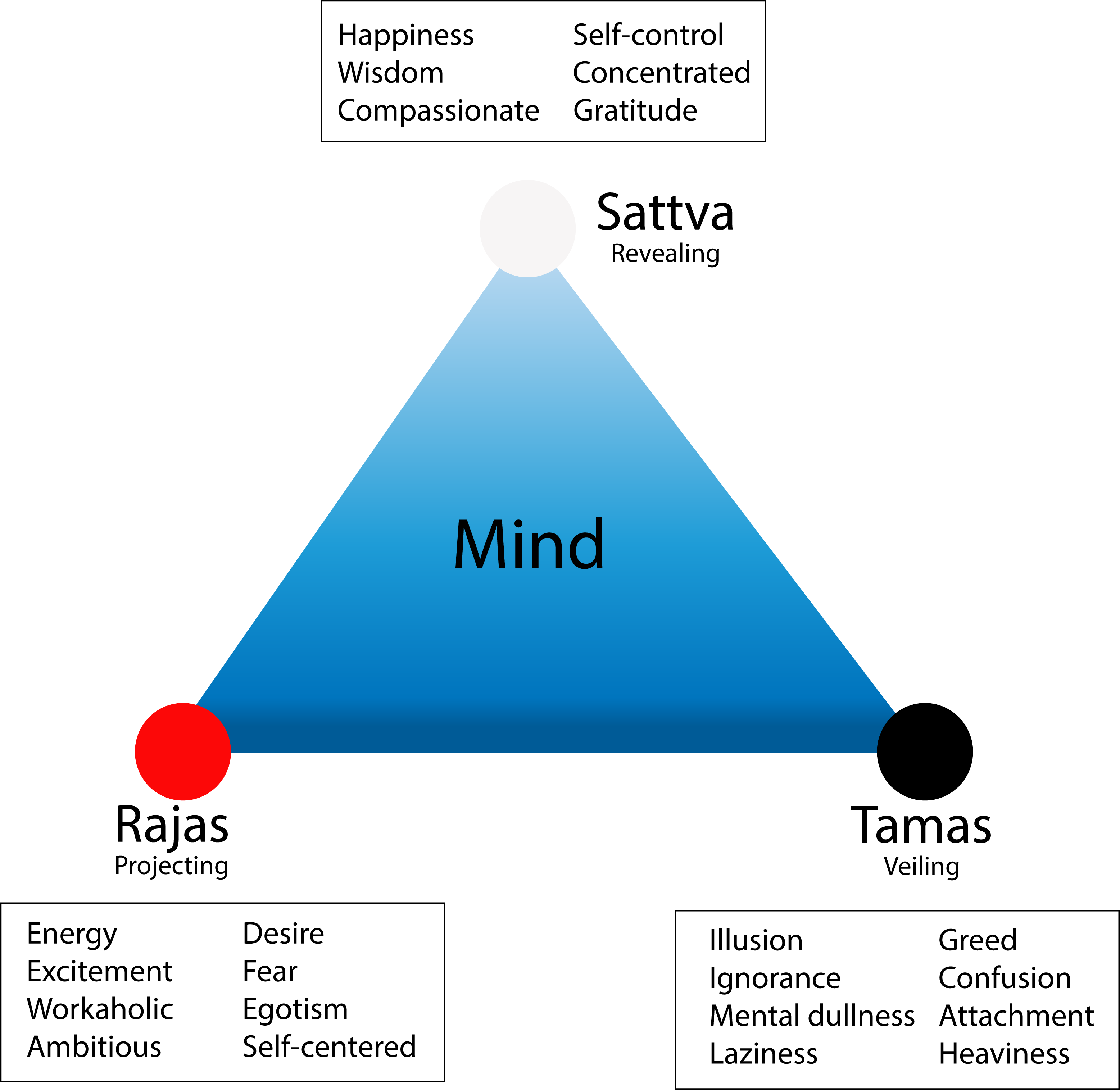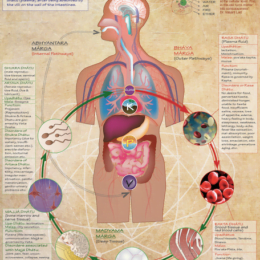
Definition of Swastha (Health)
The features of a Swastha Purusha (healthy person) are Doshas (Vata, Pitta, Kapha), Agni (digestive fire), Dhatus, Mala (waste products) and Kriyas are normal, Atma (soul), Indriya (sense organ) and Manas (mind) are peaceful is aid to be Swastha (healthy).
Swastha (health) means all Doshas, Agni, Dhatu, Mala are in the state of equilibrium along with mental, sensory and spiritual pleasantness and happiness.
The person without any abnormality or any disease is known as Swastha (healthy).
Abnormal state of Dhatu which produces Dukha is Vikara (disease). Balance or normal state of Dhatu which produces Sukha is Prakruti is Arogya (Health).
Health Traits (Lakshana/Lingani)
The features of a Swastha Purusha (healthy person) are Doshas (Vata, Pitta, Kapha), Agni (digestive fire), Dhatus, Mala (waste products) and Kriyas are normal, Atma (soul), Indriya (sense organ) and Manas (mind) are peaceful is aid to be Swastha (healthy).
Swastha (health) means all Doshas, Agni, Dhatu, Mala are in the sate of equilibrium along with mental, sensory and spiritual pleasantness and happiness.
According to Kashyapacharya
These features of the Arogya (health) and opposite state is Vikara (illness).
Someone in perfect health
Importance of Swasthavritta
One should regularly follow diet and regimen, which keep good health and prevent diseases, which are not manifested.
Ckahkrapani commenting on Swasthavritta mention the condition free from disease is Swastha (Healthy) and regimens followed to keep one self-healthy is Swasthavritta.
The methods by which men can remain healthy always should be instructed by physician, since health is always desirable. By following Dinacharaya, Nishacharya and Rutucharya described for health.
One who does not follow the Dinacharya and Ratricharya regimens properly as stipulated in Ayurveda, are likely to be infected with multiple health problem. Hence everyone should adhere to these regimens strictly in the interest of his own health.





